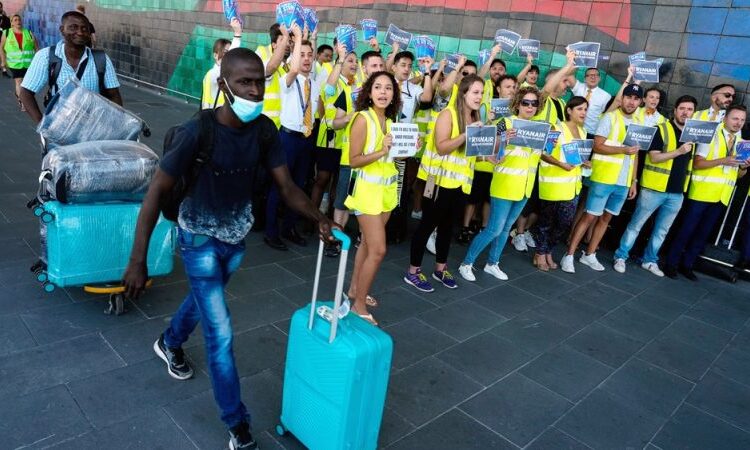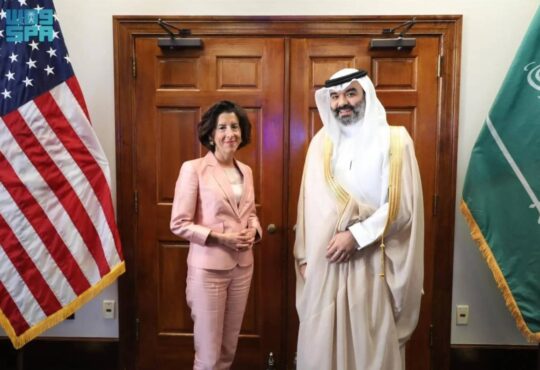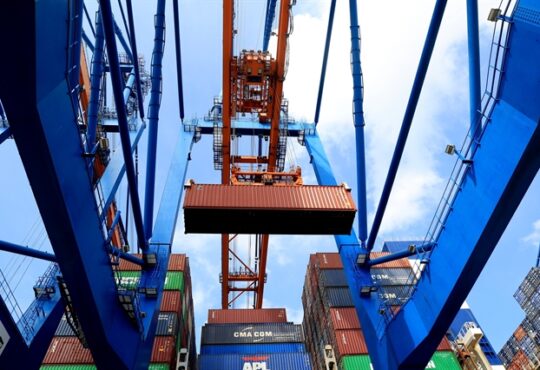
Companies with a history of alleged union-busting behaviour have received millions of euros in Commission grants over the last decade, according to a report by the International Trade Union Confederation (ITUC), raising questions over the need to link social conditions to public money.
Data from the 2023 Global Rights Index, released by the ITUC, released on Friday (30 June) and seen by EURACTIV, note 15 companies that violated labour law in Europe in the last year, with the majority being beneficiaries of EU funds. These include big names like Amazon, Ryanair, and IKEA and detail violations like firing workers seeking to strike and refusing to negotiate collective agreements.
Most of these violators have received Commission funds in the last decade, amounting to over €1 billion.
The purposes of these grants vary. For example, they can provide companies with money for engaging with research or infrastructure initiatives.
Ryanair alone has received €962 million since 2014, under the Connecting Europe Facility programme and through a Horizon programme to research pilot safety. In June of 2022, the airline refused to negotiate with striking Spanish airline and cabin workers and proceeded with disciplinary actions against strikers.
IKEA is accused of firing Polish labour leader Dariusz Kawka without notice, disregarding legal protections that labour leaders have under Polish law, according to the Solidarność union. IKEA received nearly €30 million through the Horizon 2020 research programme.
“The corporations [named in the index] have violated the most basic workers’ rights and engaged in deliberate and aggressive union-busting tactics, like firing and disciplining shop stewards or supporting yellow unions,” Esther Lynch, General Secretary of the European Trade Union Confederation (ETUC), told EURACTIV.
An EU Commission spokesperson told EURACTIV that applicant companies must commit that they comply with current EU law, including social and labour conventions, to receive EU funds.
“In cases where the price or cost of the tender received appears to be abnormally low, the Commission may request the tenderer to provide explanations that could relate to compliance of the tenderer/subcontractors with applicable obligations in the fields of environmental, social and labour law,” the spokesperson said. However, high social standards are not an actively sought-after precondition for receiving EU funding.
ETUC is now calling for a revision to rules on public procurement.
In their Action Programme, adopted last month at ETUC’s annual congress, syndicates demanded that “only companies that respect workers and trade union rights, negotiate with trade unions and whose workers are covered by collective agreements, get access to any form of public funds.”
This would include money from both the EU and national governments.
The EU Commissioner for Social Rights, Nicolas Schmit, met these proposals with sympathy.
“If you do not pay the right wages, if you exclude the unions, if you refuse to have collective bargaining, you cannot be part of public procurement,” he said, speaking at the same congress, “this is public money, and it cannot be spent on those who do not respect the law.“
The EU would not be the first to implement social conditionality clauses attached to public funds.
In 2022, the US introduced the Inflation Reduction Act (IRA), which incentivised clean tech companies to settle in the states, promising subsidies and tax incentives. The IRA includes union protections, including a prevailing wage requirement, tax incentives for companies with high labour standards, and higher subsidies for companies that employ a unionised labour force.
The push for adding social conditionality to Commission grants and programs has been a priority of socialists going into next year’s European elections.
MEP Agnes Jongerius, speaking at a union rally outside of the European Parliament earlier this month, said, “For me, it’s clear. It’s about taxpayers’ money, our money, our collective money, we are more than right to ask for social conditions.”
[Edited by János Allenbach-Ammann/Alice Taylor]






